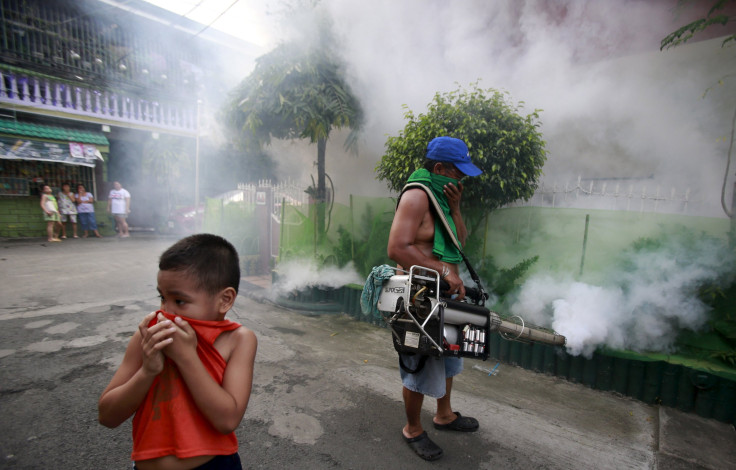Does El Niño Cause Dengue Fever? Deadly Epidemics Linked To Changing Climate And Weather Patterns

Every two to five years, dengue fever rages in tropical regions. This year, a particularly bad outbreak in India has struck more than 1,800 people in recent weeks, killing five. Officials are unsure why this year's outbreak has been so much worse than others and many wonder why dengue outbreaks seem to happen in cycles. Now, researchers at the National Institutes of Health may have found a clue: the weather phenomenon known as El Niño.
Dengue (pronounced DEN-gee) fever is a virus transmitted by Aedes mosquitoes that causes a high fever, severe headache and pain behind the eyes and in the joints. In some cases, it develops into the more severe dengue hemorrhagic fever, which can cause blood vessels to leak, potentially leading to death.
But although dengue outbreaks tend to occur during the rainy season in tropical and subtropical regions, it's far worse some years than others. Scientists have linked those cycles to El Niño, a phenomenon that happens typically every three to seven years when waters in the equatorial Pacific Ocean or the western Indian Ocean become unusually warm, setting off heavy rains and flooding in some areas and droughts in others.
Factfile on #dengue fever - a disease that affects ~2 million people worldwide every year #NTDS pic.twitter.com/zmkzgAhibq
— Global Health (@GlobalHealth) October 8, 2015
Researchers, led by Wilbert van Panhuis of the Graduate School of Public Health at the University of Pittsburgh, studied dengue fever outbreaks over the course of 18 years and across eight countries: Thailand, Cambodia, Laos, Malaysia, Singapore, the Philippines, Vietnam and Taiwan. What they found was that dengue transmission across those countries was synchronized with El Niño and, in particular, with ocean temperature in the east-central Pacific Ocean, according to a blog post published Tuesday on the National Institutes of Health's website.
Once those temperatures rose above a certain degree, Aedes mosquitoes were more easily able to reproduce and transmit the virus that causes dengue, they hypothesized. Van Panhuis and his colleagues published their findings in the Proceedings of the National Academy of Sciences.
El Niño already has begun and is predicted to grow even stronger next year. Dengue fever has no vaccine. The Philippines Department of Health has said it expects a higher number of dengue cases in 2016 and has increased its proposed budget by 25 percent in preparation.
© Copyright IBTimes 2024. All rights reserved.






















